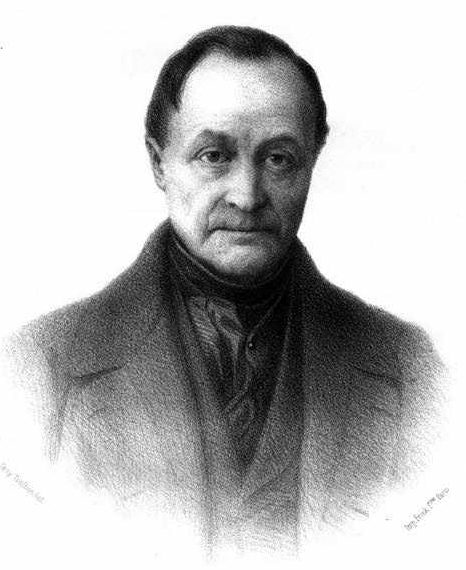The key difference between positivism and empiricism is that positivism is a theory that states that all authentic knowledge is scientific knowledge whereas empiricism is a theory that states that the sense experience is the source and origin of all knowledge. Positivism and empiricism are two related philosophical theories. Positivism describes the nature of knowledge, i.e, the verification of knowledge through scientific methods. Empiricism, on the other hand, describes the source and origin of knowledge. Furthermore, it is important to note that positivism is built on the theory of empiricism.
Key Takeaways
- Positivism focuses on the nature of knowledge and its verification through scientific methods, while empiricism focuses on the source and origin of knowledge through sense experience.
- Empiricism serves as the foundation for positivism, as both theories rely on sensory experience for knowledge acquisition.
- Notable figures in positivism include Auguste Comte and Émile Durkheim, while prominent empiricists include John Locke, George Berkeley, John Stuart Mill, and David Hume.
What is Positivism?
Positivism is a philosophical theory that asserts all authentic knowledge can be verified through scientific methods such as observation, experiments, and mathematical/logical proof. These scientific methods provide concrete facts as they investigate facts based on measurable, observable and empirical evidence, which are subject to principles of reasoning and logic. Therefore, positivism only accepts scientifically and empirically verifiable facts as knowledge, and everything else as nonexistent. Overall, positivists believe that all problems human beings face will be reduced or eradicated with scientific progress.
However, it is also important to note that according to this theory humans first gain information from sensory experience. Then, this theory is interpreted through reason and logic. Therefore, empiricism serves as the foundation of positivism. Moreover, positivism states that valid knowledge is found only in a posterior knowledge (knowledge based on experience).
We usually attribute the development of the doctrine of positivism to the nineteenth century French Philosopher Auguste Comte. Comte believed that “each branch of our knowledge passes successively through three different theoretical conditions: the theological, or fictitious; the metaphysical, or abstract; and the scientific, or positive.” And, this last condition refers to positivism, which he believed was the ideal stage. Émile Durkheim is another prominent figure in positivism.
Figure 01: Auguste Comte
Furthermore, positivism is similar in its outlook to scientism, and there are many branches of positivism such as logical positivism, legal positivism, and sociological positivism.
What is Empiricism?
Empiricism is a theory that states the origin of all knowledge is sense experience. The theory emphasizes the role of the five senses (visual, auditory, tactile, olfactory, and gustatory sensation) in obtaining knowledge and presents the argument that humans can only have a posteriori knowledge. Moreover, empiricists reject the idea of innate or inborn knowledge.
Early empiricists have described the mind as a blank slate (tabula rasa) when we enter the world. Accordingly, it is only through the acquisition of experience that humans gain knowledge and information. However, this claim questions the validity of religious and ethical concepts since these are concepts we cannot directly observe or experience. John Locke, George Berkeley, John Stuart Mill, and David Hume are some leading figures in empiricism.
Figure 2: John Locke
Moreover, empiricism is in direct contrast to rationalism, which states that knowledge comes through reason, not experience.
What is the Relationship Between Positivism and Empiricism?
Empiricism serves as the foundation of positivism. According to these two theories, humans first gain information from sensory experience (this is empiricism). Then, this experience is interpreted through reason and logic (this is positivism).
What is the Difference Between Positivism and Empiricism?
Positivism is a philosophical theory that states that the only authentic knowledge is scientific knowledge while empiricism is a theory that states that the origin of all knowledge is sense experience (visual, auditory, tactile, gustatory and olfactory sensation). So, this is the key difference between positivism and empiricism. Also, stemming from the above is another difference between positivism and empiricism. In positivism, knowledge can be verified through scientific methods and mathematical/logical proof, while in empiricism, the experience is the origin of knowledge.
Auguste Comte and Émile Durkheim are two prominent figures in positivism while John Locke, George Berkeley, John Stuart Mill, and David Hume are prominent empiricists.
Summary – Positivism vs Empiricism
Positivism and empiricism are two major philosophical theories that analyze the origin and nature of knowledge. The key difference between positivism and empiricism is that positivism is a theory that states all authentic knowledge is scientific knowledge whereas empiricism is a theory that states sense experience is the source and origin of all knowledge.
Reference:
1. “Empiricism.” Empiricism – By Branch / Doctrine – The Basics of Philosophy, Available here.
2. “Positivism.” Philosophy Terms, 25 Oct. 2018, Available here.
3. “Positivism.” Wikipedia, Wikimedia Foundation, 24 Mar. 2019, Available here.
Image Courtesy:1. “Auguste Comte” By Blonder.com (Public Domain) via Commons Wikimedia
“John Locke Crop” By Godfrey Kneller – This file has an extracted image: File:JohnLocke.png (CC BY-SA 4.0) via Commons Wikimedia
Related posts:
Difference Between Positivism and Constructivism
Difference Between Truth and Validity
Difference Between Patriarchy and Feminism
Difference Between Inductive and Deductive Reasoning
Difference Between Philosophy and Theory
